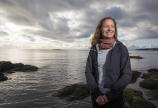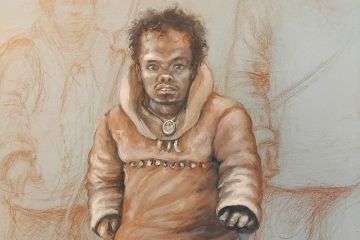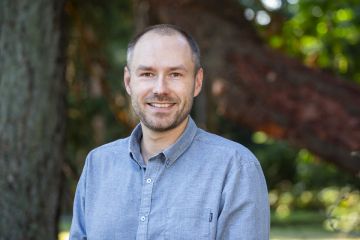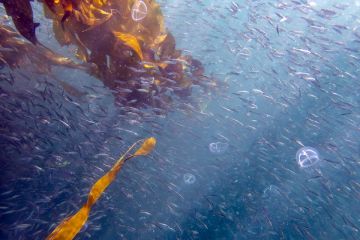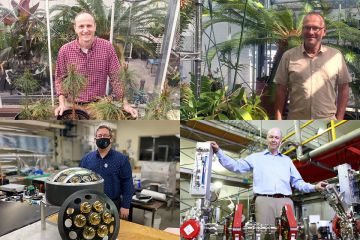Finding real-world solutions to marine conservation
- Anne MacLaurin
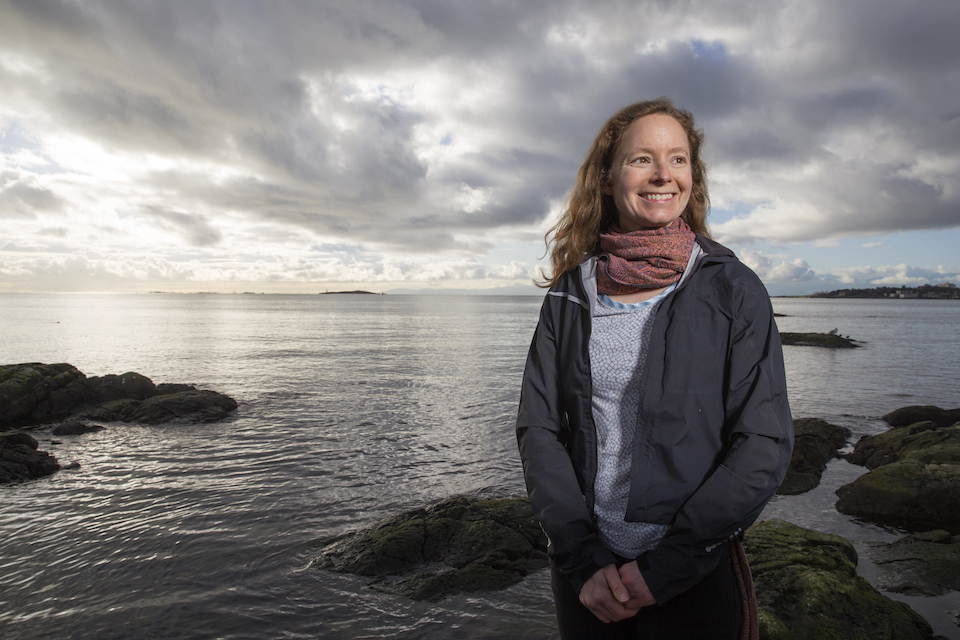
Natalie Ban is at the forefront of seeking solutions to contemporary global environmental challenges, in a way that embraces equity, diversity and inclusion. As a marine conservation scientist—in UVic’s School of Environmental Studies—she finds real-world solutions to ever-changing environmental patterns and threats, including climate change, in marine conservation practices and planning.
Marine protected areas (MPAs) are known for protecting biodiversity, but the effects on people who use the oceans are debated and climate change considerations are minimal. Her team’s research led to improved consideration of climate change in MPA planning in Canada’s Pacific Ocean.
“At the heart of my research are Indigenous and community partners, considering relevant information and methods from multiple disciplines, and inspiring students and collaborators to carry out excellent science that has a societal impact," says Ban.
These vital contributions to research, teaching and community engagement earned Ban the recognition of a President’s Chair—the highest honour a faculty member can receive at UVic.
"I feel some discomfort how awards single out one person for recognition when so many people are involved in my research: students, postdoctoral fellows, collaborators, Indigenous and community partners. This award will allow us to keep doing great work together,” says Ban.
Ban’s innovation lies in embracing multiple perspectives, diversities of solutions, and ways of knowing; she hopes that considering both Indigenous knowledge and Western science—and interweaving them when appropriate—will address modern problems and inequities in fisheries management and model a collaborative approach applicable to BC and elsewhere.
“My approach to partnering in research is to co-create research questions and methodologies with Indigenous Peoples and other partners,” says Ban. “Much of my research supports Indigenous authority to steward the oceans.”
Ban hopes to spend more time in coastal communities to build further connections with her research partners, especially related to fisheries reconciliation. She will also be dedicating time to researching the social-ecological outcomes of marine protected areas.
Ban's research reflects UVic's commitment to the United Nations Sustainable Development Goals (UN SDGs) to promote prosperity while protecting the planet—in particular, UN SDG 14: conserve and sustainably use the oceans, seas and marine resources for sustainable development.
About the President's Chair
The President’s Chair is the highest academic honour UVic can bestow on a faculty member. UVic’s ten President’s Chair positions recognize faculty who have:
- achieved great distinction in research and research-inspired teaching
- made substantial contributions to UVic and the wider community
- are capable of championing excellence in research, teaching and community-university engagement
Photos
In this story
Keywords: sustainable partnerships, community, Indigenous, sustainability, administrative, student life, People Place Planet
People: Natalie Ban
Publication: The Ring

